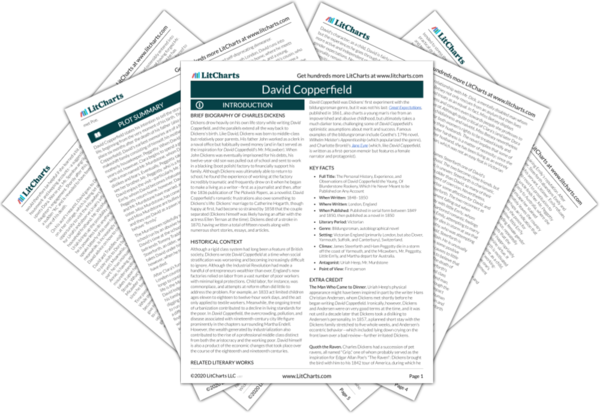To David, the storm isn't just a threat to the physical safety of Yarmouth's residents, but also, symbolically, to his entire life's philosophy, which hinges on rationality and optimism. Even the act of writing a memoir, for instance, assumes that it's possible to trace a logical path from David's childhood self to who he is as an adult. As he describes it, however, the storm disrupts everything that's orderly, turning "all nature" upside down.
